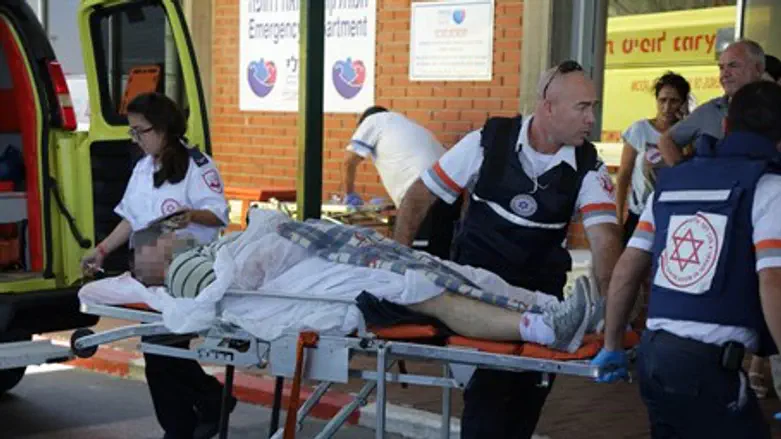
The Israeli government ordered the closure of the Erez Crossing into Gaza on Sunday, after terrorists in the Hamas enclave peppered the point of entry for humanitarian supplies in the early afternoon.
During that salvo of mortar fire around 2 p.m., which Hamas said consisted of 13 mortar shells, five people were wounded including two with critical injuries. Well over 570 rockets have been fired at Israel in the last five days.
As a result of the direct attack on the crossing, Kamil Abu Rokan, director of the Crossings Point Authority of the Defense Ministry, and Coordinator of the Government Activities in the Territories (COGAT) Major General Yoav Mordechai decided to close the crossing except for in cases of life-saving action.
The Erez Crossing has been used throughout Operation Protective Edge to transfer the wounded from Gaza for medical treatment, and to bring in humanitarian goods to the Hamas stronghold. A total of 50 people were supposed to leave Gaza through the crossing on Sunday for medical aid.
Abu Rokan's office released a statement on Sunday over the closure, noting "throughout the entire operation, the staff of the Crossing Points Authority has been working around the clock to provide humanitarian assistance to the residents of the Gaza Strip."
That assistance has included "facilitating the crossing of hundreds of people to hospitals in Israel through the Erez Crossing, and the transfer of more than 5,000 tons of medical equipment through the Kerem Shalom Crossing," specified the statement.
"Hamas has hurt the transfer of patients from the Gaza Strip and the provision of medical aid," concluded Abu Rokan's office succinctly.
Aside from continuing to transfer supplies to Gaza despite Hamas's terror war on Israel, the Jewish state has also continued supplying electricity to Gaza, which is needed to fire rockets. The Palestinian Authority (PA), which buys electricity for Gaza, owes Israel 1.5 billion shekels ($525 million) in unpaid electric bills.
Regarding this influx of goods to Gaza, Institute for National Security Studies head Maj. Gen. (res.) Giora Eiland last Tuesday suggested that instead of retaliatory airstrikes to Gazan rockets, Israel should cut off supplies to Gaza in response to the missiles.
